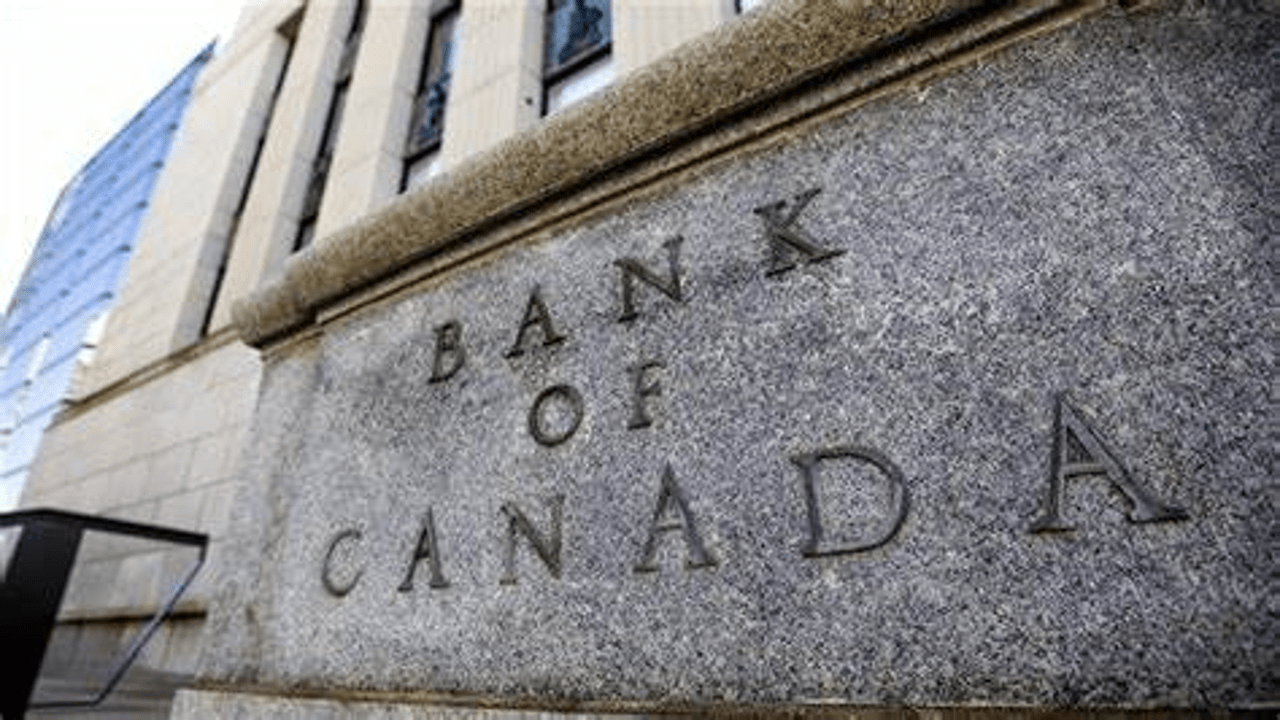
The Bank of Canada has lowered its key interest rate to 3.75%. The Bank Rate has also been adjusted to 4%, and the deposit rate is now set at 3.75%.
The Bank of Canada has announced a reduction in its key interest rate, lowering the policy rate by 50 basis points to 3.75%. The bank rate stands at 4%, while the deposit rate is also at 3.75%. This move is part of the central bank's ongoing strategy to normalize its balance sheet and support economic growth.
Globally, the Bank of Canada expects the economy to grow at a rate of 3% over the next two years. In particular, the U.S. economy is performing better than anticipated, while China's growth remains sluggish. The eurozone, which has seen weak economic performance, is predicted to recover slightly in the coming year. Inflation across advanced economies has cooled in recent months, aligning more closely with central bank targets. Financial conditions worldwide have eased since July, as markets expect further cuts to policy interest rates. Additionally, global oil prices have dropped by about $10 compared to the projections in the Bank's July Monetary Policy Report.
In Canada, the economy expanded by around 2% in the first half of the year, and a slower growth of 1.75% is expected in the second half. While overall consumption continues to rise, it's slowing down on a per capita basis. The recent opening of the Trans Mountain pipeline has provided a boost to exports. However, the labour market remains under pressure, with the unemployment rate at 6.5% in September. Canada's workforce is growing, especially with the influx of young workers and newcomers, but hiring has been sluggish. Wage growth is high relative to productivity, contributing to the economy's current state of excess supply.
Looking ahead, the Bank of Canada forecasts gradual improvements in GDP growth, with projections of 1.2% for 2024, 2.1% for 2025, and 2.3% for 2026. The predicted economic rebound will be supported by lower interest rates, which are expected to encourage consumer spending and residential investment. The housing sector, in particular, is projected to benefit from strong demand, leading to increased home sales and renovation activities. Business investments are also expected to strengthen as demand rises, particularly for exports to the United States.
Inflation in Canada has seen a significant decline, falling from 2.7% in June to 1.6% in September. Shelter costs remain elevated, though they have begun to ease, and the drop in global oil prices has led to lower gasoline prices. Excess supply in the economy has also helped reduce the prices of goods and services. The Bank's preferred measure of core inflation is now below 2.5%, reflecting a more stable inflation outlook. As a result, both business and consumer inflation expectations have normalized.
The Bank of Canada expects inflation to remain near its 2% target over the coming years, as pressures from housing and services ease and excess supply is absorbed. The decision to cut the policy rate aims to support economic growth while keeping inflation within the target range. If the economy continues to evolve as forecasted, further rate cuts could follow, though these will depend on future data and the inflation outlook. The Bank remains committed to maintaining price stability for Canadians, keeping inflation close to its 2% goal.















